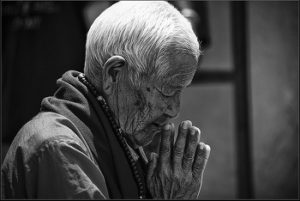
Acceptance. We have all heard the word over and over again. This word can often can be brought up in a tough situation. When we lose a loved one we may be asked to accept the truth that they have passed. We all handle grief differently. Losing a loved one, a job, our independence, a pet, a friendship, etc. These situations can all lead to a time of grieving. It can often seem like we are always grieving about something! No matter how hard we wish this were not the fact, we often get knocked back down to earth with the idea of trying to accept a certain outcome. We often don’t want to accept this and it’s easier to stay in denial or use distractions to cope so we don’t have to face what has happened. With all the atrocities in our world, it’s not hard to see how this can easily become a form of survival. With support, love, and time, we can often find some relief in our grieving. Obviously everyones support system can look different or some unfortunately may be nonexistent. Often we see grief support groups offered in the community which is a great thing. Not everyone is blessed with a supportive group of family and friends. The good news is that these situations may start out as gut wrenching but can often lead to a new friendship or to a recharge of a past relationship with a family member. Even those who may not reach out in a tough life situation may be left with a new awareness or breakthrough in their own life. It hurts like hell but can often lead to a new beginning. With grief often comes depression. Sometimes this can be symptoms of depression that were brought on with a loss or maybe the depression was already there. When we are dealing with a behavioral health difficulty like OCD, depression, anxiety, etc, another blow to our lives can sometimes seem like too much to bear. We also know that depression can often go hand in hand with OCD, Anxiety, chronic pain, etc. When we are dealing with emotional struggles in our daily lives, another loss can feel like someone took a sledgehammer to our chest. Our minds and hearts become a sea of emotions and pain. The tears and loneliness can become an everyday occurrence. When dealing with depression or symptoms of grief, we can often feel like we are completely alone. It’s common to often feel alone when dealing with depression. Even if we are surrounded by people who care about us, it’s easy to feel like you are isolated on an island with no rescue in sight.
Again, acceptance is often suggested when someone is dealing with a loss or seeking assistance for some emotional support. This could be from a therapy situation or in a substance abuse support group. As brutal as it can feel, the process of accepting something can be a freeing experience. It gives us a starting point. There is obviously nothing we can do to change anything in our past, whether that was 3 seconds ago or 3 years ago. All we have is now, sounds cliche, but it’s reality. No one is promised an hour from now. If we accept this, it may help our struggles seem more manageable. The 12 step groups often talk about “one day at a time.” Acceptance Commitment Therapy and Dialectical Behavioral Therapy both offer a key component of “mindfulness” in their techniques. Jon Kabit Zinn is a world authority on mindfulness. He defines mindfulness as: “awareness that arises through paying attention in a particular way, on purpose, in the present moment, non judgementally.” This can lead to acceptance. No matter how difficult the moment, if we can accept the moment for what it is, we might have an easier path to what we want to achieve. Often what we want to achieve is more peace of mind, more happiness, less pain, more focus, etc. Mindfulness can show us that no matter what we are dealing with, that paying attention in the moment, and attempting to stay neutral about our thoughts, can help us feel more in control of a situation. We can often train our minds to look at our thoughts as “good” or “bad”. Maybe “lucky,” or “okay”, or “sinful.” Mindfulness teaching often suggests to look at thoughts as neutral, not good or bad, just as thoughts. ACT therapy techniques suggest being mindful of our thoughts, and once again, just noticing them, not reacting to or trying to fix them. This is one of many areas where Exposure and Response Prevention as well as Acceptance Commitment Therapy have been helpful for OCD symptoms. They share the common suggestion to notice the thoughts or obsessions and not participate in rituals. We can’t stop our thoughts from coming but we do have power in what we choose to do with these thoughts. If we are caught in the ugly grip of OCD or another behavioral health issue, its easy to feel helpless about our reactions to our thoughts. We all have thoughts that may scare us at times. A lot of individuals may have a certain “quirky” thing they do with the shirts in their closet or have a “lucky” tune they sing before a stressful situation. What separates these people from those diagnosed with true OCD, is the intensity and amount of time spent on obsessions, compulsions, rituals, etc. Someone may feel that it is good “luck” to put their left shoe on first. This person puts the left one on first every morning for “luck” and goes on about their day. A person with OCD could be caught in this same situation for hours trying to get those shoes on “just right” and in a special order. Mindfulness can help put a distance between us and our thoughts. We often hear in OCD circles that we are not our thoughts, we are not the OCD, OCD is something we have but we are not the person it tries to suggest we are. This is especially true when dealing with OCD symptoms of a violent nature. E.g.- the mom who cannot leave the house because she is afraid that she will do something awful to her neighbor on the way to pick up her kids at school. OCD symtoms try to tell us that we will do these awful things, but it’s the OCD. In ACT therapy they suggest to “look at thoughts, not from thoughts.” An example would be placing our thoughts or images in our mind onto clouds. We can visualize this and put these thoughts, words, or images on the clouds and watch them float away. Once again, it puts distance between us and our thoughts, because again, we are not out thoughts. Just as if someone is doing Exposure Response Prevention to work on their OCD. They can place themselves in a situation on purpose that raises their anxiety. By not giving into the rituals, and being in the moment, we can find some more flexibility in our minds and see that the anxiety will eventually come down on its own.We can just notice what our brain is asking us to do, check, count, ask, pray, doubt, wash, etc. We can notice these thoughts and images in our minds, and again we don’t have to respond to the demands of the OCD. This is great news! There is hope, truly!
Acceptance can be a great thing, and it can also knock us to our knees. The good news is that it can be a great building block to better days ahead. Life can obviously be very difficult. If you are ever having any thoughts of harming yourself, please, please, reach out to someone. Hang in there.
Jeremy Rudd
